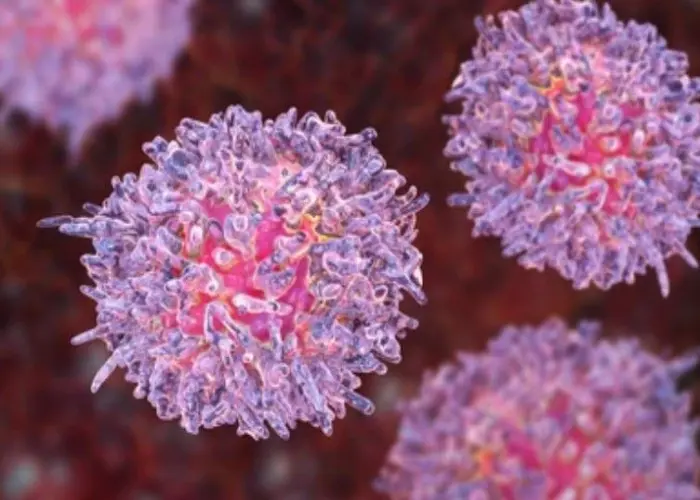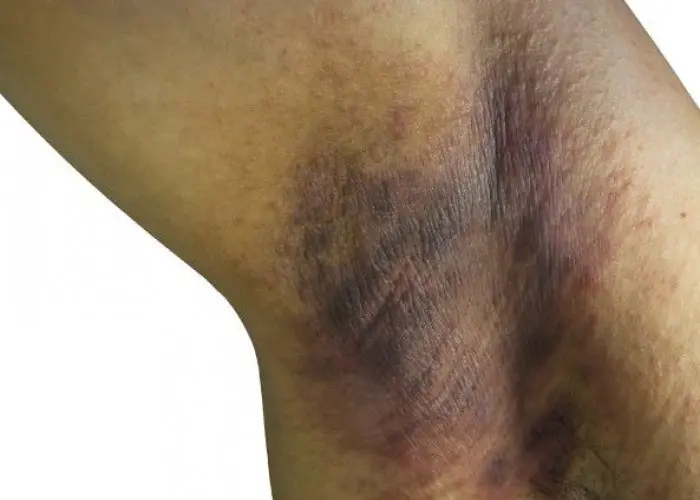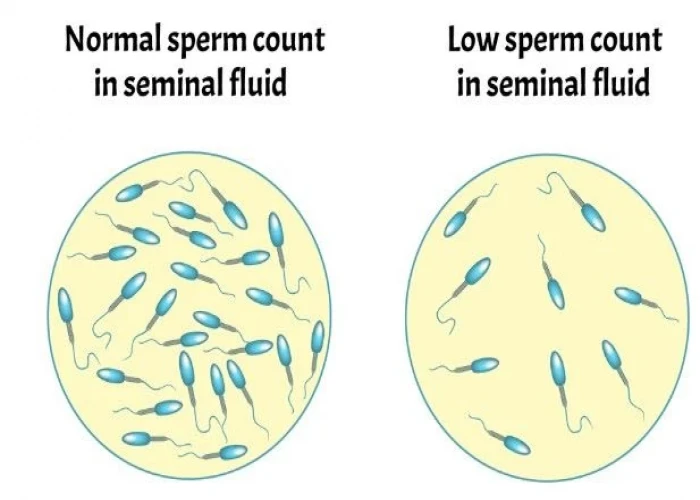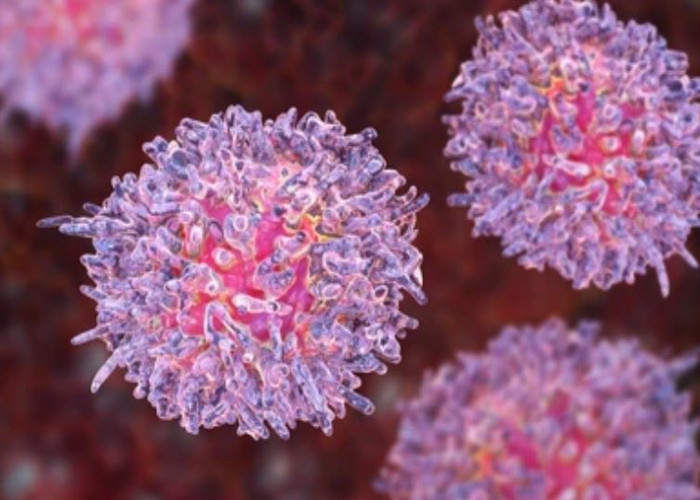 Welcome
Welcome
“May all be happy, may all be healed, may all be at peace and may no one ever suffer."
Chronic lymphocytic leukemia

Chronic lymphocytic leukemia (CLL) is a type of cancer that affects the white blood cells, specifically the lymphocytes, and is characterized by the accumulation of abnormal lymphocytes in the bone marrow, blood, and lymph nodes. CLL is a slowly progressing cancer and may not cause symptoms in its early stages. As the disease progresses, common symptoms may include fatigue, weakness, night sweats, enlarged lymph nodes, and weight loss. The exact cause of CLL is not well understood, but it may be related to genetic mutations or exposure to certain environmental factors. Treatment for CLL depends on the stage of the disease and may include chemotherapy, immunotherapy, targeted therapy, or a combination of treatments. It is important to see a healthcare provider if you are experiencing symptoms or are at risk for CLL to receive an accurate diagnosis and appropriate treatment.
Research Papers
Disease Signs and Symptoms
- Enlarged lymph nodes
- Fatigue (Tiredness)
- Fever
- Infertility
- Night sweats
- Weight loss
- Enlarged, but painless, lymph nodes
- Pain in the upper left portion of the abdomen, which may be caused by an enlarged spleen
Disease Causes
Chronic lymphocytic leukemia
Doctors aren't certain what starts the process that causes chronic lymphocytic leukemia. What's known is that something happens to cause changes (mutations) in the DNA of blood-producing cells. A cell's DNA contains the instructions that tell the cell what to do. The changes tell the blood cells to produce abnormal, ineffective lymphocytes.
Beyond being ineffective, these abnormal lymphocytes continue to live and multiply when healthy lymphocytes would die. The abnormal lymphocytes accumulate in the blood and certain organs, where they cause complications. They may crowd healthy cells out of the bone marrow and interfere with blood cell production.
Doctors and researchers are working to understand the exact mechanism that causes chronic lymphocytic leukemia.
Disease Prevents
Disease Treatments
Your treatment options for chronic lymphocytic leukemia depend on several factors, such as the stage of your cancer, whether you're experiencing signs and symptoms, your overall health, and your preferences.
Treatment may not be needed right away
If your chronic lymphocytic leukemia doesn't cause symptoms and doesn't show signs of getting worse, you may not need treatment right away. Studies have shown that early treatment doesn't extend lives for people with early-stage chronic lymphocytic leukemia.
Rather than put you through the potential side effects and complications of treatment before you need it, doctors carefully monitor your condition and reserve treatment for when your leukemia progresses.
Your doctor will plan a checkup schedule for you. You may meet with your doctor and have your blood tested every few months to monitor your condition.
Treatments for intermediate and advanced stages
If your doctor determines that your chronic lymphocytic leukemia requires treatment, your options may include:
- Chemotherapy. Chemotherapy is a drug treatment that kills quickly growing cells, including cancer cells. Chemotherapy treatments can be administered through a vein or taken in pill form. Depending on your situation, your doctor may use a single chemotherapy drug or you may receive a combination of drugs.
- Targeted drug therapy. Targeted drug treatments focus on specific abnormalities present within cancer cells. By blocking these abnormalities, targeted drug treatments can cause cancer cells to die.
- Immunotherapy. Immunotherapy uses your immune system to fight cancer. Your body's disease-fighting immune system may not attack your cancer because the cancer cells produce proteins that help them hide from the immune system cells. Immunotherapy works by interfering with that process.
- Bone marrow transplant. A bone marrow transplant, also known as a stem cell transplant, uses strong chemotherapy drugs to kill the stem cells in your bone marrow that are creating diseased lymphocytes. Then healthy adult blood stem cells from a donor are infused into your blood, where they travel to your bone marrow and begin making healthy blood cells.
- As new and more-effective drug combinations have been developed, bone marrow transplant has become less common in treating chronic lymphocytic leukemia. Still, in certain situations this may be a treatment option.
Treatments may be used alone or in combination with each other.
Supportive care
Your doctor will meet with you regularly to monitor any complications you may experience. Supportive care measures may help prevent or relieve any signs or symptoms.
Supportive care may include:
- Cancer screening. Your doctor will evaluate your risk of other types of cancer and may recommend screening to look for signs of other cancers.
- Vaccinations to prevent infections. Your doctor may recommend certain vaccinations to reduce your risk of infections, such as pneumonia and influenza.
- Monitoring for other health problems. Your doctor may recommend regular checkups to monitor your health during and after treatment for chronic lymphocytic leukemia.
Disease Diagnoses
Disease Allopathic Generics
Disease Ayurvedic Generics
Disease Homeopathic Generics
Disease yoga
Chronic lymphocytic leukemia and Learn More about Diseases

Tetanus

Dysarthria

Acne

Bladder stones

Pemphigus

Neurodermatitis

Hidradenitis suppurativa

Low sperm count
Chronic lymphocytic leukemia, CLL, Lymphocytic leukemia, দীর্ঘস্থায়ী লিম্ফোসাইটিক লিউকেমিয়া
To be happy, beautiful, healthy, wealthy, hale and long-lived stay with DM3S.
